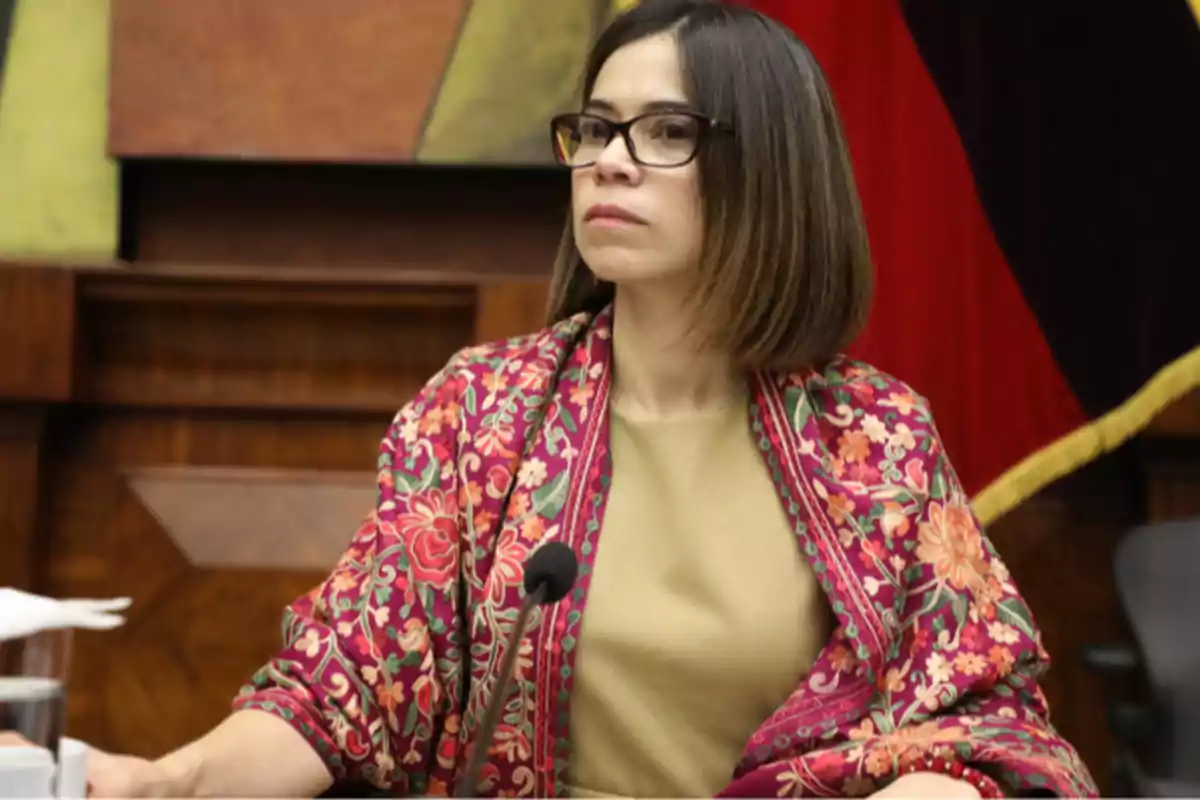
Judge Camacho requested to prosecute Esther Cuesta for the Ligados case.
The National Court requested permission from the Assembly to prosecute the former legislative president
Judge Daniella Camacho of the National Court of Justice requested the National Assembly to authorize a criminal trial against Esther Cuesta, former acting president of the Legislature. The request arises in the context of the Ligados case, an investigation exposing an alleged network of influence in the Citizen Participation Council and other public entities.
According to the Prosecutor's Office, Cuesta allegedly intervened politically to prevent the appointment of a banking official, favoring the interests of correísmo. In the revealed chats, her name appears linked to maneuvers to block the appointment of Roberto Romero von Buchwald as Superintendent of Banks and place Raúl González in his place.
The judge's request occurs before a possible hearing for the formulation of charges for illicit association, where they would also seek to include Andrés Arauz and Raúl Carrión. The case was left in the hands of prosecutor Wilson Toainga, following the resignation of Diana Salazar, adding institutional tension to the process.
For Cuesta to be tried, the Assembly must lift her immunity with at least 101 votes. If it doesn't rule within 30 days, the request will be automatically considered accepted. This constitutional provision prevents political blocking of judicial processes, although the current legislative fragmentation makes immediate approval unlikely.

This new political scandal revives concerns about the influence of correísmo in state institutions. Cases of manipulation in the CPCCS have been previously reported, but this case directly involves figures with legislative decision-making power.
If the accusations are confirmed, Cuesta's involvement would mark a serious setback in the principles of impartiality and transparency. The political essentialization of public positions, as this case suggests, reflects the structural vices that 21st-century socialism sowed in the state apparatus.
The Assembly's response will be key: if it allows the trial, judicial autonomy will be strengthened; if it blocks it, the perception of impunity will worsen. The Ligados case could be a barometer of the political commitment to democratic regeneration in Ecuador.
The judicial request against Esther Cuesta not only represents a possible legal turn for the Ligados case but also tests the Legislature's willingness to break with practices inherited from correísmo. The country watches closely to see if justice or partisan protection will be prioritized.
More posts: